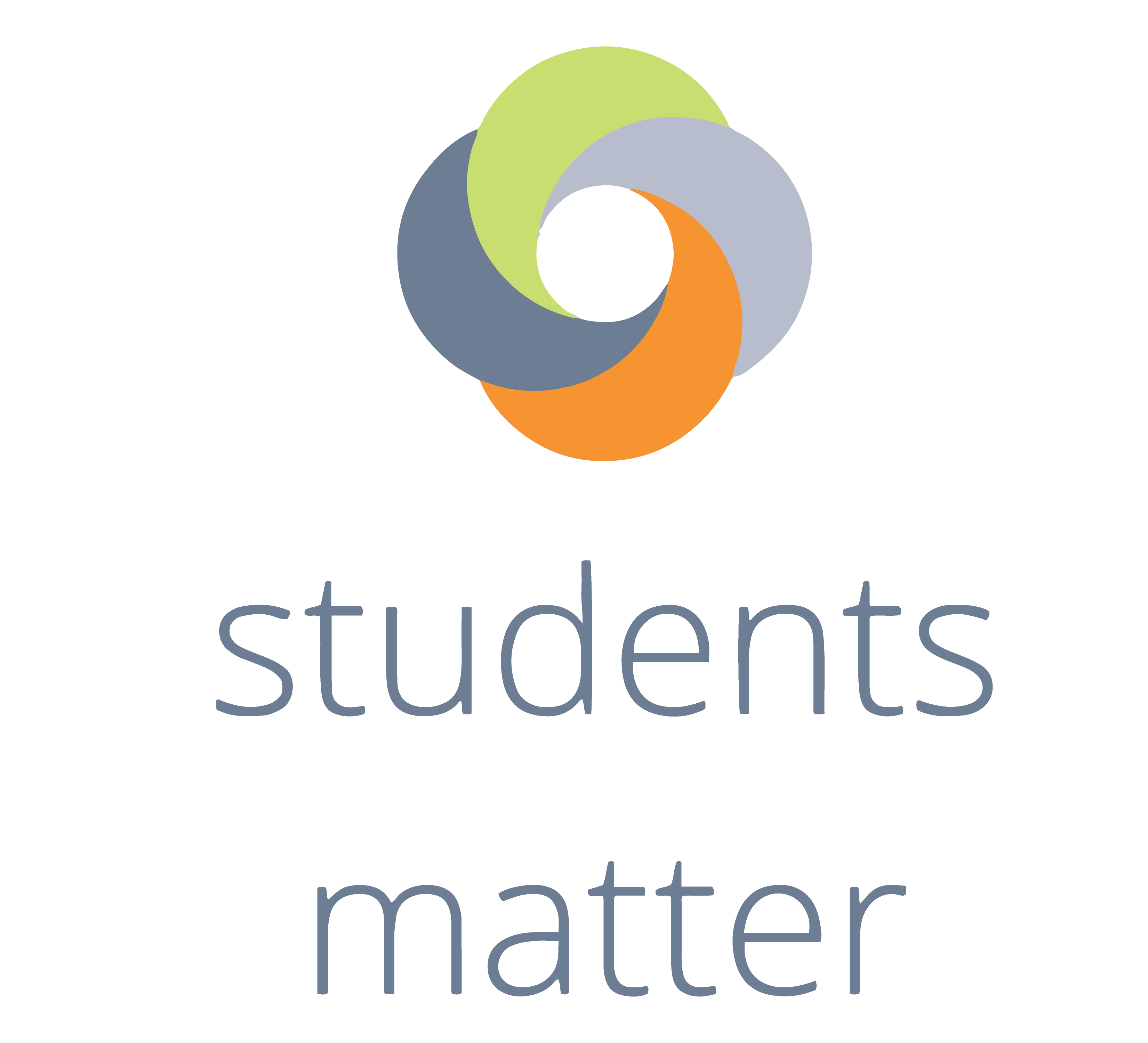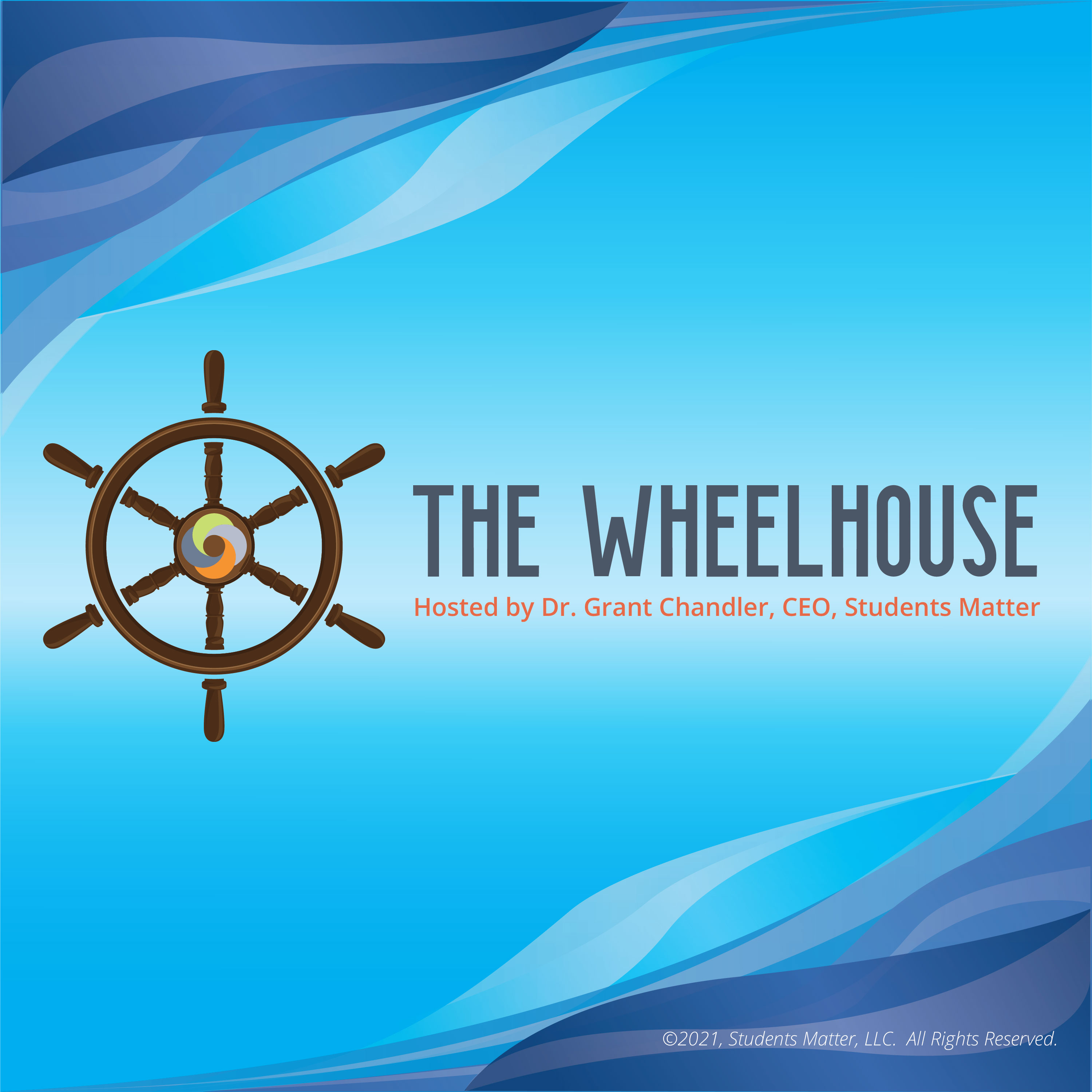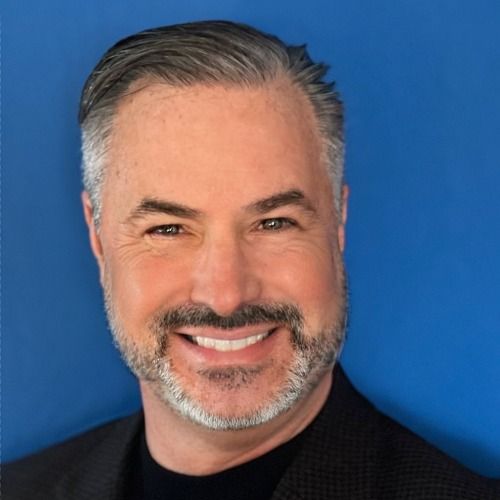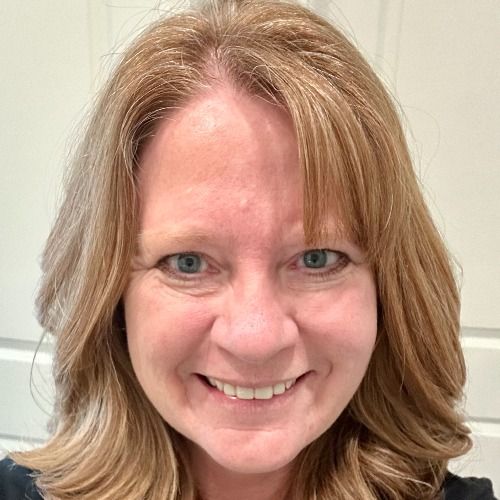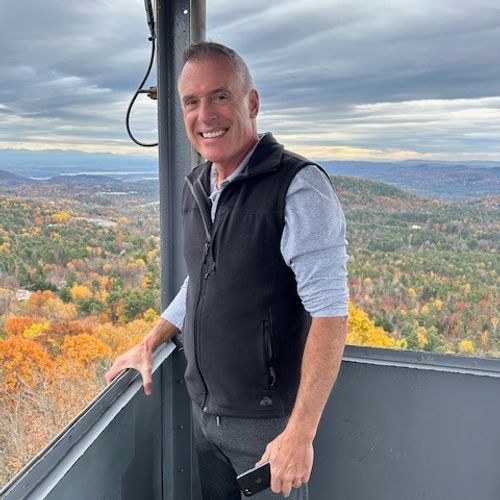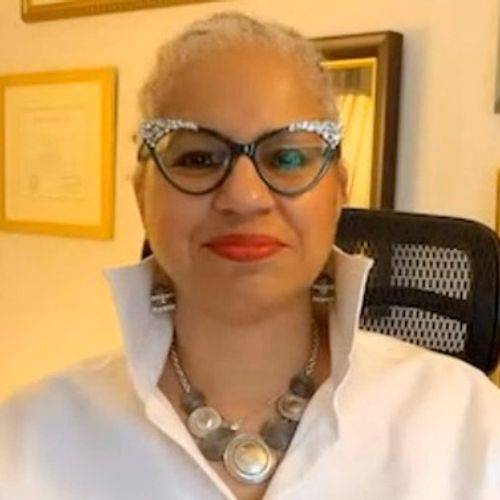A Call to Action: How Educators Can Inspire Hope
The central theme of this podcast episode revolves around the imperative notion of empowering educators to foster an environment where each student is not merely a passive recipient of knowledge but an active participant in their educational journey. We delve into the pressing need for educators to feel empowered to disrupt the transactional nature of traditional schooling, thereby ensuring that every student feels confident, optimistic, and capable. The discussion builds upon previous conversations, emphasizing the critical role of humanizing education and recognizing dignity as an inherent right of every child. We explore the generational differences in perspectives among educators and students, underscoring the necessity of fostering hope within the educational landscape. Ultimately, we invite our listeners to reflect on how they can contribute to this movement, cultivating a supportive and nurturing environment for all students.
In the second episode of Season Nine, the panel engages in a profound discourse concerning the empowerment of educators and the vital need to cultivate hope within educational environments. The conversation delves into the overarching theme of disrupting the transactional and often detrimental nature of contemporary schooling, advocating for a transformative approach that prioritizes the well-being and potential of each student. The speakers emphasize that true empowerment transcends mere professional development; it encompasses a commitment to recognizing and fostering the unique identities of learners, thereby creating a nurturing space where they can flourish. This episode starkly contrasts the notion of education as a mechanistic process with the necessity for it to be a deeply humanizing experience, where dignity and compassion are foundational elements. As educators share their personal reflections on empowerment, they highlight the imperative to remain vigilant and proactive in supporting students, particularly in times of systemic challenges and political upheaval. Their collective insights serve as a rallying cry for educators to engage in community-driven efforts, emphasizing that the stakes are not merely academic but, indeed, a matter of life and death for many students, particularly in underserved communities.
Takeaways:
- In this episode, we delve into the imperative of empowering educators to foster a nurturing environment where every student feels valued and capable of achieving their potential.
- The conversation emphasizes that education transcends mere academic achievement; it must address the holistic needs of students, including their emotional and psychological well-being.
- We explore the critical role of community in education, advocating for collective action among educators to combat systemic challenges and promote equitable learning opportunities.
- The discussion highlights the importance of recognizing the unique identities of each student and educator, advocating for an inclusive approach that honors diversity in educational settings.
- We assert that the guiding principles of the Wheelhouse project serve as a foundation for transformative education, urging educators to embrace humanizing practices that prioritize dignity and empowerment.
- Ultimately, the episode calls for a renewed commitment to cultivating hope within educational spaces, positioning it as a vital responsibility of every educator to inspire and uplift their students.
Links referenced in this episode:
Companies mentioned in this episode:
- Students Matter, LLC
Transcript
I'm Dr.
Speaker A:Grant Chandler and this is another episode of the Wheelhouse.
Speaker A:How are you feeling?
Speaker A:Empowered?
Speaker A:And how do you help others to feel the same?
Speaker A:A new episode begins right now.
Speaker A:Thank you for taking time out of your busy day to give us a listen.
Speaker A:Season nine features a panel of four like minded friends and colleagues.
Speaker A:Kathy Mone, Michael Pipa, Dr.
Speaker A:Alicia Munro, and yours truly.
Speaker A:We've opened up the conversation this season to think about empowering educators to cultivate hope.
Speaker A:In this second episode, we build upon our first episode conversation where we talked about the vision and guiding principles of the Wheelhouse.
Speaker A:Now, today we're talking about how we as educators must feel empowered to disrupt that transactional, hurting nature and really support each student to feel confident, optimistic, capable, well supported and emboldened to be and to become who they are meant to be.
Speaker A:You know, at the end of the day, what we do for some children is even bigger than cultivating hope or killing dreams.
Speaker A:It's a matter of life and death.
Speaker A:Toward the end of this great conversation, Michael said, our classrooms aren't museums.
Speaker A:And we got so intrigued by that image that we got into an interesting conversation about the generational differences among educators and even between educators and students alike.
Speaker A:It was a fascinating conversation about feeling empowered to cultivate hope.
Speaker A:And Kathy summed it up brilliantly.
Speaker A:You don't want to miss what she said at the end of this episode.
Speaker A:I'm going to invite you to join our community to check out our newsletter together.
Speaker A:Let's cultivate hope for each and every student.
Speaker A:Now, episode two.
Speaker A:You're not going to want to miss this.
Speaker A:Take a listen.
Speaker A:Foreign Good morning, I'm Grant Chandler.
Speaker A:This is the Wheelhouse.
Speaker A:I feel like we've already recorded part of this session before I hit the record button.
Speaker A:So I want to say welcome to season nine, episode two, where our theme this season is all about cultivating hope.
Speaker A:And I am with my assistant, esteemed friends, colleagues and humans that I adore.
Speaker A:So welcome back Kathy Moni, Michael Piper and Alicia Monroe.
Speaker B:Hello, hello, hello, hello.
Speaker A:Good morning.
Speaker B:So good to be with you.
Speaker A:It is so good to see you all.
Speaker A:And I know this is a podcast, so you're listening, but I get to see the faces of these incredible people as we record this session.
Speaker A:So, you know, episode one was really about our us talking about what the Wheelhouse.
Speaker A:As the Wheelhouse evolves and moves into season nine, you know, what is the Wheelhouse all about?
Speaker A:As we've expanded beyond just talking about the pinnacle work that Students Matter does with accomplishment driven leadership and powerful student Care.
Speaker A:We've really kind of expanded beyond that conversation to open up a bigger dialogue about what it means to cultivate hope.
Speaker A:And we have a vision for what the Wheelhouse is all about.
Speaker A:And we have four guiding principles.
Speaker A:And last week, we talked about that vision and those guiding principles.
Speaker A:I'm going to read it again one more time.
Speaker A:This will be the last episode where I will read these guiding principles to you.
Speaker A:And then we're really going to have a conversation about the word empower and how we are feeling empowered as educators to do this work and how we are helping other educators feel empowered.
Speaker A:So before we dive into this.
Speaker A:And my friends are at the edge of their seats, if you could see them, they are ready to have this conversation.
Speaker A:Here is the vision and guiding principles one more time, which kind of is the foundation of the work that we do.
Speaker A:So the Wheelhouse.
Speaker A:This podcast exists to create an inclusive community of empowered educators who believe that together we can disrupt that transactional, hurting nature of schooling, to create districts, schools, and classrooms where each student feels confident, optimistic, capable, well supported, and emboldened to be and to become who they are meant to be.
Speaker A:We operate under five guiding principles that we share with our guests.
Speaker A:One, we are steadfastly committed to each learner and each educator, believing that they are distinctive and irreplaceable.
Speaker A:Two, we believe that educating our children should be a humanizing, relational, and transformational endeavor.
Speaker A:And for us, all else is secondary.
Speaker A:We also believe three, that dignity is a birthright.
Speaker A:It is not something that requires something to be earned.
Speaker A:Each child deserves a future filled with open doors and unlimited possibilities.
Speaker A:Our work is in service to this central aspiration.
Speaker A:And finally, our fourth guiding principle.
Speaker A:We believe that each human life is unique and precious.
Speaker A:And as such, we are compelled to remove aspects of schooling that disregard any student's dignity.
Speaker C:As you were going through that, first of all, I think that I could listen to that every morning just as a bit of, you know, a significant motivation just.
Speaker C:Just to get myself grounded in our day for whatever's coming at us.
Speaker C:But I was just writing down key words as you were speaking that I think then are gonna really feed into this conversation about empowerment.
Speaker C:And it, you know, I.
Speaker C:They're inclusive together.
Speaker C:This disruption, community, humanizing, dignity, birthright, and unique.
Speaker C:And the big word in all of it, emboldened.
Speaker C:Those were all of the things as we.
Speaker C:We wrote that together.
Speaker C:Listening to you read it over and over, those words continue to just lift off the page for me.
Speaker B:Well said, Kathy.
Speaker C:Thanks, Michael.
Speaker A:So, my dear friends and colleagues, how Are you feeling empowered?
Speaker B:I'm going to jump in and try to provide an on ramp for some of the conversation that happened prior to our recording where, Alicia, you were sharing how your day began and the spaces you've been working in and working through prior to being able to rejoin with us.
Speaker B:And the response that I had inside my head as you were talking about those realities and those truths was that as education at every level comes under threat by the recent executive orders and proposed policy changes for education coming out of this administration, I'm thinking about the, a more appropriate view of what education is to the human community.
Speaker B:And I think the analogy I was having was it is the rainforest to the human community.
Speaker B:And we have opportunists who want to seize that acreage and pave it with uniformity or overlay a business model upon it and in so doing destroy one of the central resources that the human community needs.
Speaker B:And as trustees of this project, stewards of it who've inherited it.
Speaker B:Leaders like you, Alicia, are in the moment right now where you have to talk to people who have no regard for the precious resource of education and find direct ways to challenge, to halt and to counter, while you're also protecting the human beings who are part of that resource.
Speaker B:And I just want to say thank you.
Speaker D:Thank you, Michael, Kathy and Grant for safe space.
Speaker D:It is truly turbulent times in this country.
Speaker D:And when I heard Grant and Kathy talk about birthright, education is a birthright that will not be questioned.
Speaker D:And we need folks standing on the line screaming at, aloud, amongst many other things.
Speaker D:Collective action truly has to be collective.
Speaker D:And we, we have a lot.
Speaker D:We have to educate ourselves, we have to become aware, we have to become community.
Speaker D:This is not a self centered movement.
Speaker D:It's really necessary that we move forward as a united front.
Speaker D:I've been in spaces which I, and I'm hearing really diametrically opposed perspectives.
Speaker D:And I'm really trying to understand where are you sitting.
Speaker D:I mean, it's so far stretched.
Speaker D:It's outside of privilege and entitlement, it's delusion.
Speaker D:And to really think that we've come to that place where all of us are trying to address humanity, so to speak, it's really something special.
Speaker D:All I can say.
Speaker D:And that's special with air quotes.
Speaker D:Right?
Speaker D:Um, so, you know, I'm, I'm glad you honored the fact of spaces that I've been in sometimes late at night and the crack of dawn in the morning, but that's what it's going to take.
Speaker C:And I think that that's why this conversation is so vital, you know, with thinking about empowerment.
Speaker C:I think that it's incredibly easy right now to get caught up in the overwhelmingness of everything coming at us so quickly.
Speaker C:And how do we create spaces and have conversation that encourage people, encourage everyone within this community to feel empowered within the spaces in which they exist.
Speaker D:So before someone else chimes in, I do want to talk about the overwhelmingness, Kathy, that you just like succinctly, right on point, addressed.
Speaker D:And in the spaces that where I reside, where I uplift my voice, where my thoughts are honored and amplified, and my insights are really respected, we see the overwhelmingness as distractions and diversionary tactics so that we stay focused on these minuscule little tidbits when the harsh reality is happening.
Speaker D:But we're so focused on these other pieces that form chaos that we miss the target.
Speaker D:So I implore all to keep your eyes on the prize and watch for the target, because that is the critical area that we need to move forward collectively and dismantle and disrupt.
Speaker A:I was thinking about my question.
Speaker A:How are you empowered and how are you empowering others?
Speaker A:And I was listening to you all talk through this podcast.
Speaker A: erything that has occurred in: Speaker A:And you take all of that and just put it aside for just a second.
Speaker A:We can't put it aside for very long, but if we put it aside for just a second, we've been talking about in the wheelhouse and you know, when Michael first came to the wheelhouse as a guest and when Alicia first came as a guest and when Kathy joined the roundtable back in season four, we were talking about the need, right, to really rethink education because we really needed to move away from kids test scores and kids demographics and to really think about how we honor each child, how we build spaces for them, right, to grow and become who they are meant to be.
Speaker A:And so I feel, because of that, I feel like we're ready.
Speaker A:We've been talking about the importance of humanizing the learning environment, and we've been talking about dignity.
Speaker A:And now that the conversation has become much more intense and the need much more intense to talk about, I'm excited.
Speaker A:I'm not excited by the conflict.
Speaker A:I wish the conflict never existed, right?
Speaker A:But I'm excited by being able to be a voice in that conflict, to continuously remind educators and to build that community of educators who come from all walks of life, how incredibly important it is that we do this work and that we, you know, to, to quote Alicia from last.
Speaker A:From the last episode, to remind us of whether or not we are cultivating hope, promoting hope, or killing dreams.
Speaker A:And there are forces out there that would like, you know, that would like this entity to kill dreams for some people.
Speaker A:We are about cultivating, promoting hope for each and every student, regardless of who they are, how they identify.
Speaker A:And remember, folks, everybody brings a multidimensional identity to, To.
Speaker A:To who they are.
Speaker A:We are not one.
Speaker A:We are not one individual thing.
Speaker A:So that's what I've been thinking about as I've been listening to you all talking.
Speaker A:I'm like, oh my gosh, I feel empowered.
Speaker A:I feel like.
Speaker A:I'm like, we are, you know, I only speak for me, right?
Speaker A:I am ready to get in there, right?
Speaker A:And to do this work to support our children.
Speaker B:That question of how.
Speaker B:How are we feeling empowered?
Speaker B:And, you know, when I'm listening to each of us talk about how we're feeling the overwhelm, I'm like, each of us, I'm imagining trying to come up with some way to make sense of the leadership the country has chosen and to interpret as well as I'm able to why the majority of Americans have chosen this leadership.
Speaker B:And I feel empowered as an educator because I've been doing the work long enough to watch enduring truths remain after all has fallen through the sieve.
Speaker B:And those enduring truths are really captured in the four principles that Shape Powerful Student Care and the Wheelhouse Project.
Speaker B:Those are enduring truths that the quintessential outsiders that our nation seems to have by majority chosen to lead the country and the virtues automatically attributed to these outsiders just by mere virtue of being outsiders.
Speaker B:You can't understand enduring truths in any profession, any important work, unless you've been an insider for a long, long time.
Speaker B:Time.
Speaker B:And we're about to nationally, I think, figure that out once again, a lesson we've learned previously.
Speaker B:Figure it out once again that you can't marginalize people who've committed their lives to the difficult learning that professions like education, like medicine, like law, require of us.
Speaker B:You got to have the standing power to stick it out and the courage to look your mistakes in the face and to let.
Speaker B:Let difficult questions persist and not run away from them, ignore them, pretend they're not there.
Speaker B:Educators do this, and as a result, we discover those enduring truths.
Speaker B:It's one of the reasons why I've gone back and started rereading Pedagogy of the Oppressed.
Speaker B:I feel like in the midst of all of this, I just need my Heart to, To hear those words again and to be living and breathing those truths again.
Speaker C:So a sense of empowerment comes from grounding ourselves.
Speaker C:Right?
Speaker C:That's what I'm hearing you say, Michael, that you're going back to resources to be able to help ground yourself in, in truth and understanding, then what does it mean for us within our spaces?
Speaker C:I keep, you know, going back to that because I think it's.
Speaker C:As the four of us think about our own spaces, it's also about our audience spaces.
Speaker C:Right.
Speaker C:All the, all those that are listening to us and, and thinking about, okay, what does that, what does that mean for me?
Speaker C:And what do I do with that?
Speaker C:What can I possibly take from this conversation and apply it and believe in it and find my grounding and my foundation to be able to continue.
Speaker D:To.
Speaker C:Cultivate these spaces for the students in which I'm entrusted with, the adults I'm entrusted with, the people I'm encountering at the grocery store, you know, any.
Speaker C:Any level of connection to humanity.
Speaker C:How do I ground myself in order to do that and be empowered versus feeling overwhelmed?
Speaker D:So when I hear empowerment and then I hear ferreri pedagogy of the oppressed, and you can't think about that without thinking about and really sitting in critical consciousness.
Speaker D:And then I hear Kathy allude to morality and what is it to be kind?
Speaker D:That's dignity.
Speaker D:Dignity empowers as humble servants.
Speaker D:So if we're looking at powerful student care and the tenets of powerful student care that Grant and I toss back and forth as we align it with whole child and all the wonderful frameworks he and I really enjoy authoring, it's about how we're activating what's on the, on the paper.
Speaker D:Right.
Speaker D:How are we making this 2D flat step, 4D live?
Speaker D:And when we do that, we can't expect.
Speaker D:This is not kind of like, like a free rider kind of syndrome, right?
Speaker D:Where we hop on the back of the bus and somebody else is driving, we all have to give a piece.
Speaker D:That's, that's, that's empowerment now.
Speaker D:Empowerment now looks very different than the, than the years, the early years before.
Speaker D:Right.
Speaker D:Just a year ago or two years ago.
Speaker D:Right.
Speaker D:It's a different administration with a different outlook.
Speaker D:We really have to be strong with the who I am and the who are we as we come into community.
Speaker D:Because I must stress, that is what we need now.
Speaker D:The community coming together, keeping their eyes on the prize of the real target and therefore moving forward with solutions and critical action and a designed plan and solid strategies.
Speaker D:That's empowerment.
Speaker D:As I think about what Mike and Kathy and Grant has offered up, that's the dignity of it all.
Speaker B:Yeah.
Speaker B:I'm so glad you talked about critical action because when we're not being tested and challenged, we can postpone action.
Speaker B:And one of the benefits of being pushed and pushed and pushed by inappropriate and just insane ideas is how do we translate what we know to be true into action right now, wherever we are, in whatever capacity we can.
Speaker B:And how do we coordinate and use that community you're talking about so that we do take action?
Speaker B:And how do we, as a national community of people invested in education link together?
Speaker B:Because there's not one elected representative who wants to stand in front of a community of educators and try to BS them.
Speaker C:I think it's that link together in humanity.
Speaker D:Right?
Speaker C:So we, we are educators, we're in educational spaces, but it's the link is humanity and what does that look like for everyone?
Speaker A:And rethinking schooling and moving us away from this transactional, hurting mentality to thinking about how education, right, becomes transformational, how it becomes humanizing.
Speaker A:And you think about the vision that I always, that I think about often is, you know, the young, the young parent, mom or dad or both, right?
Speaker A:Grandma, grandpa, I mean, they wouldn't be young, but I mean, you know, that parent, you know, but in my vision, I, you know, I always think, I always see a younger parent bringing their five year old.
Speaker A:The scary, the scary part of bringing your 5 year old to a school and wanting, and wanting to get into that parent's head, you know, because you know what they're not thinking, you know what they're not thinking, they're not thinking, oh, oh, please, please make sure that in three years when my kid's a third grader that they pass the state's end of course assessment.
Speaker B:Right?
Speaker A:Right.
Speaker A:They don't think that they're thinking, especially in the United States today.
Speaker A:Please make sure my child comes home today.
Speaker B:Yeah.
Speaker A:Please make sure my child is safe today.
Speaker A:Please love my child like I do.
Speaker A:Please look out for them.
Speaker A:Please do what you need to do to help them.
Speaker A:Because I need your help.
Speaker A:And what I wish we would say to every one of those young parents, I've said this over and over and over again.
Speaker A:I wish we would simply say in my vision, she's always a young mom, right?
Speaker A:But I wish we would just say, don't worry, we got you and we got your little baby here and we're going to take great care of him or her or them.
Speaker A:And we are going to nurture them.
Speaker A:And we are going to provide them the space to learn deeply and to become.
Speaker A:That's what I think we should be telling that young parent, whether that's a mom, a dad, or whomever.
Speaker A:Right.
Speaker A:Doesn't matter.
Speaker A:But that's, to me, that is the empowerment that we need and that will transcend.
Speaker A:That transcends politics, because that will win every single time.
Speaker D:So in urban ed, I'd like to dovetail off of that, Grant.
Speaker D:In urban Ed, it becomes, in several cases, questions of life versus death.
Speaker A:Absolutely, absolutely.
Speaker D:So in urban ed, as an urban educator, that's where I landed.
Speaker D:After venturing into other areas, my calling is urban ed is please keep my son or daughter, he, she or they so involved in education that they're not going to be distracted by what they encounter as they come to and from school.
Speaker D:Please keep them out of the penal system.
Speaker D:Right.
Speaker D:And not even tempted.
Speaker D:Because, you know, our schools are created as a mill, per se.
Speaker D:These track that way and the others track that way.
Speaker D:So depending on the academy, are they going to move on to bigger and brighter pastures or is this just an entryway into the penal system?
Speaker A:Because we're either promoting hope or killing dreams.
Speaker D:So please love my child sometimes more than I could even love them because I am dealing with so much trauma and just trying to make it happen.
Speaker D:These are intense life or death questions that our schools are not set up to answer because there's somewhere within this formula of schooling that we did not factor in empathy and compassion.
Speaker D:So empowerment comes right from there.
Speaker D:Right?
Speaker D:The basic elements and critical needs of humanity.
Speaker D:Sorry about that, Grant.
Speaker D:I just wanted to finish that thought.
Speaker A:No, I didn't want to interrupt you.
Speaker A:I remember in another life, I was in London and I was studying school districts in the city of London that were high, high poverty.
Speaker A:Right?
Speaker A:High, high, high, high, high poverty, you know, and that were outperforming the neighboring school that was not high poverty.
Speaker A:Right.
Speaker A:And so what you saw was schools that were primarily children of color in incredibly high poverty situations that were outperforming in many cases, not all, but in many cases white, but always economically advantaged.
Speaker A:And one of, one of my tasks was to, was to understand that.
Speaker A:And Alicia, that's exactly what these leaders said, right?
Speaker A:One was, you know, you have to approach all of this like it's a matter of life and death.
Speaker A:And two, and I'll never forget either one of these leaders, they weren't called superintendents, but the equivalent of a superintendent who said, hey, look, we have no idea, we have no idea.
Speaker A:What happens to each of our children?
Speaker A:Each.
Speaker A:He said, we have no idea what happens to each of our children when they leave here at 4:00 in the afternoon.
Speaker A:Our job the next day is to find out.
Speaker A:Our job is to find out, to take care of, you know, to respond to whatever happened, good, bad or indifferent, right?
Speaker A:And then get them ready to be in a space where they are nurtured and can learn.
Speaker A:And this empathy and love, this humanity, this humanizing approach where dignity was a birthright, is literally how they outperformed in all of those accountability measures that we talk about.
Speaker A:They were outperforming children who are economically advantaged in other places.
Speaker A:And so we've missed that boat.
Speaker A:And Alicia, thank you so much for throwing that out there again.
Speaker A:Because the answer to what everybody says is the ills of school.
Speaker A:And our NAEP scores are going blah, blah.
Speaker A:Everything is deteriorating rapidly.
Speaker A:The answers to all of that is what the vision of the wheelhouse is and what the guiding principles are.
Speaker A:And if we can build a growing cadre of empowered educators who understand that even in the face of all of this other transactional stuff that's ugly, our children will have hope.
Speaker B:What about the content, though.
Speaker C:Michael?
Speaker A:What about those ELA learning standards?
Speaker A:Those are a given, my friend.
Speaker A:Those are a given, right?
Speaker A:Schools exist to teach children.
Speaker A:This is what we're all about when we talk about empowering educators, right?
Speaker A:We all come to the table recognizing, I believe, I don't want to speak for anyone, but we recognize that these guiding principles, we all say them a little bit differently in our own individual work, right?
Speaker A:And our own individual scholarship.
Speaker A:But these guiding principles, right, are what we, as we build this community of difference, of empowered educators, our kids are going to thrive, our kids are going to soar because we're promoting hope and we're not killing dreams.
Speaker D:So I sit around and I, I so honor everyone's thoughts.
Speaker D:And we are of a certain generation of educators, all of us in this space, right?
Speaker D:Uh, oh, no.
Speaker D:And I, you know, we made it.
Speaker D:I'm happy.
Speaker D:Hallelujah.
Speaker D:Anyway, and we still standing in sitting to have this conversation.
Speaker D:And it has not been an easy ride.
Speaker D:So we could all, we all know that.
Speaker D:And as I sit in the College of Ed and I train teachers, but more importantly, attract teachers through provisional teacher tracks, alternate route, regardless of the state you're in, all of us call it something a little different, but it's attaining that practice outside of the traditional educational system set up, whether that be college or whatever that is.
Speaker D:Okay?
Speaker D:So it's how do we have these conversations with Gen Z and millennial teachers?
Speaker D:Right.
Speaker D:And I have really been focusing on the teacher shortage and the crisis of high quality educators.
Speaker D:And Mike, what just prompted me to think about that is, you know, we're thinking about curriculum, I'm thinking about instructional delivery, and we have to think about all of that and then some.
Speaker B:That's right.
Speaker D:I know this is too much to think about and really unpack today, but is how do we keep the good teachers from burning out?
Speaker D:How do we align the veteran teacher thinking with the realities of today's students?
Speaker D:And then how do we really honor the innovative thought from an energy and gifts and skills of the Gen Z educator in a space with Gen Alpha and in some cases Gen Z students, it becomes that there are generational conversations and generational consciousness that we also need to address to be more cohesive in empowering not only each and every student, but each and every educator in the space.
Speaker B:Yeah, because the classroom's not a museum.
Speaker B:Right.
Speaker B:The classroom is this living thing.
Speaker B:And it's what makes education so exciting because you can't, you can't resist change.
Speaker B:You can try, but it just keeps coming.
Speaker B:And when you open yourself to that reality, it allows you to persist in staying open to continuing learning as much as possible and changing what you're doing, reimagining and revisiting what you've done successfully so many times.
Speaker B:Because it's what the work demands of us.
Speaker B:Those are all you just all those are all the questions that any self respecting teacher preparatory program has to center.
Speaker B:You just put them right out there is exactly all of it.
Speaker B:And each one of those should make each of us shiver because they're, they're challenging, but they're the ones.
Speaker B:They're the ones.
Speaker B:Yes.
Speaker B:To all of it at once.
Speaker B:Everything, everywhere.
Speaker B:And that's education.
Speaker A:The classroom is not a museum.
Speaker A:I loved that, Michael.
Speaker A:I absolutely love that.
Speaker A:Because sometimes it looks like one, right?
Speaker A:Sometimes it looks like it goes from.
Speaker D:Museum to hot mess.
Speaker D:We feed it all.
Speaker C:Yes, we have.
Speaker A:Who wants the last word?
Speaker C:This is always the difficult question that you throw at us.
Speaker C:How to, how to encapsulate such a rich conversation.
Speaker C:I think about how we started in this space in coming, you know, in a little hot.
Speaker C:Right, Alicia?
Speaker C:Little like, you know, from that crack of dawn conversation and those pieces and ultimately leaving, remembering how empowered we are in the spaces in which we exist and how our empowerment allows for us to continue to build this sense of hope in developing and honoring humanity.
Speaker A:And that's a wrap of episode two in this season of the Wheelhouse.
Speaker A:Are you a like minded educator who's committed to promoting hope?
Speaker A:Then subscribe to our All New wheelhouse newsletter@thewheelhouse.substack.com Tell us there.
Speaker A:How do you feel empowered?
Speaker A:How does your classroom cultivate hope for each child?
Speaker A:And how can we here at the Wheelhouse help you sustain your feelings of empowerment?
Speaker A:We really want to hear from you and we hope you'll subscribe to our All New Wheelhouse newsletter.
Speaker A:The Wheelhouse is a production of Students Matter, LLC.
Speaker A:New episodes of season nine will drop every Tuesday beginning February 25th and continuing through April 29th.
Speaker A:Our show's theme music, Off We Go, was written and performed by Cody Martin and obtained through soundstripe.com you can find me on LinkedIn or at bluesky.
Speaker A:And of course stop by our website and check out what we offer at www.ourstudentsmatter.org.
Speaker A:you can find additional episodes of the Wheelhouse at TheWheelhouse Captivate FM episodes or you can subscribe to this podcast on either itunes, Spotify, or wherever you listen to your podcasts together.
Speaker A:Our goal is to prove to each student and to each teacher that they are both distinctive and irreplaceable.
Speaker A:Until next time.
Speaker A:Remember, we got this.
